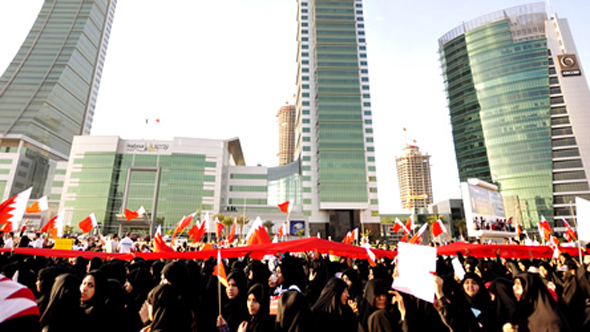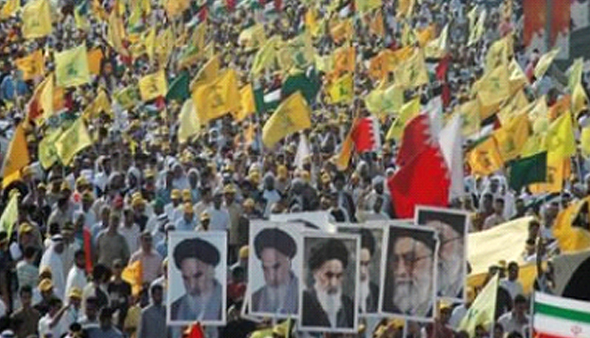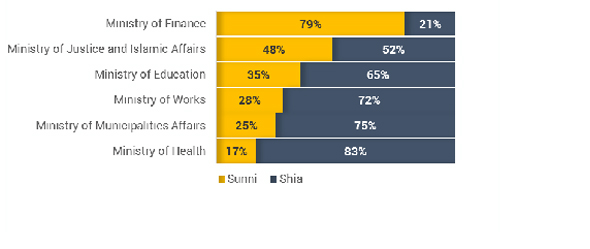The Bahraini Political Crisis: Reconciling the Narratives
Bahrain Top Stories
The Bahraini Political Crisis: Reconciling the Narratives
Three major narratives compete for dominance in explaining Bahrain’s post-2011 political crisis: the narrative of foreign interference/instigation, the narrative of sectarian discrimination and conflict, and those who insist the sectarian narrative has been invented to divert attention away from a revolution of the entire- or at least most of- the population.

The Bahraini Political Crisis: Reconciling the Narratives
By Noora Al-Mutawa
Three major narratives compete for dominance in explaining Bahrain’s post-2011 political crisis: the narrative of foreign interference/instigation, the narrative of sectarian discrimination and conflict, and those who insist the sectarian narrative has been invented to divert attention away from a revolution of the entire- or at least most of- the population.
Bahrain has established sufficient laws protecting democratic channels for progress to be achieved without violence, such as laws protecting the
freedom of press
and the independence of the judiciary.
Claims of foreign interference must include an understanding of the social vulnerabilities (be they socioeconomic, political or religious) present which facilitate the entry of outside influences, while notions of sectarian conflict disregard non-sectarian demands and fail to provide evidence of systematic discrimination and of sectarianism being the cause of the uprising.
As for a popular revolution, it is clear that the people are not united in their opinion, and that Bahrain has become a politically divided society. Delving into these different narratives, how they enforce each other and to what extent they explain the current political crisis, paints a clearer picture of a budding democratic movement, hijacked and exploited by extremists working for a foreign agenda, thereby causing flair in sectarian tension.
Democratic Channels Exploited
There are demands that are supported by the entire population- increased transparency and efficiency, a better handling of funds, and an end to nepotism, to name a few. However, those involved in street protests calling for a change of government are noisy but few.
From the six political societies participating in the current national dialogue – which, unlike the first round, has limited itself to “large” political societies – only one calls for a radical change of government.
Even if we take for granted the unconfirmed 60/40 Shia-Sunni demographic ratio, many Shiite would take offence at the assumption that they are radicals calling for a violent uprising, what’s more one led by theocrats!
Bahrain has established sufficient laws protecting democratic channels for progress to be achieved without violence, such as laws protecting the freedom of press and the independence of the judiciary.
Alas, these democratic tools are being squandered by individuals so consumed with petty bigotry that they are blind to their role as instruments in a regional proxy war .
Regional Influences Reflected in Societal Divides
Bahrain’s government and international foreign ministers have condemned Iran’s repeated attempts to infringe on the sovereignty of Bahrain. Unwilling to relinquish their territorial claims (in 2009, the now advisor to Iran’s Supreme Leader, referred to Bahrain as Iran’s “14th province”), Iran’s parliament determines that Bahrain are the ‘Mishmahig,’ a reference to the brief period of Persian rule in the 16th century.
More pressing however, is that Hezbollah – a proxy of Iran – has itself admitted to establishing a Military Wing in Bahrain. In fact, in February 2011, The Crown Prince offered a no holds barred dialogue with the opposition, which was to include a parliament with full authority, a review of naturalization and of state property, fair voting districts, and the combating of corruption.
Many see Al-Wefaq’s (the largest opposition society) rejection of the offer, which could potentially meet all their demands, as proof that they are vessels for Iranian expansionist ambitions as it reflects Iran’s policy towards Bahrain.
In the face of these accusations, opposition supporters point to the close relationship between the Bahraini and Saudi Arabian governments. Saudi Arabia has strong interest in protecting its borders, having been victim to Iranian advances on its border with Yemen.
As 27% of the world’s crude oil passes through Bahraini waters, assuring that Bahrain remains free from dominance is a top priority of Saudi’s foreign policy. Given its economic reliance on Saudi tourism and crude oil, Bahrain is moving to even closer cooperation, much to the delight of Bahraini business people.
However, parallel to Al-Wefaq, there exist a number of hard-line Sunni political parties in Bahrain who hope to emulate Saudi religious codes. The Shiite fear that the desire for closer ties with Saudi is a result of lobbying by these hardliners , and that Saudi has supported hardline factions in Bahrain.
They therefore have held on tighter to their Shiite identity and moved closer to Iran- even waving the Hezbollah flag and pictures of Khomeini during street protests. Despite being historically a much more culturally open society than either, the tension Bahrain is placed in between these two religiously extreme worlds has directly played into the current sectarian crisis.
Before tensions spiked with the establishment of the current regime in Iran, the political landscape of Bahrain was pluralistic and, largely, blind to sect.
In fact, no other Gulf country holds as many public holidays to accommodate such a diverse population. Jobs in the public sector are divided roughly equally between Sunni and Shiite, and so are state-benefits (see graph).
Even the Shariah courts are divided into separate Sunni and Shiite Courts at every level, with different laws and judges. This is not to say that there is no conflict between the two sects, just that there is no discrimination confirmed by law. Observing past parliamentary elections, and given the divisions in parliament today, with currently no truly secular members, it seems that politics has degenerated into a simple math of association rather than a labour for public interest.
Indeed, many-particularly liberals- have sighed that protests which could have led to meaningful change were hijacked by Shiite extremists backed by Iran, causing a backlash amongst conservative Sunnis. In effect, the division between sects has influenced the trajectory of events of the crisis and the increase in sectarian hostility was an outcome, yet in itself, it was not a cause for the current political crisis.
The tragic scenario of foreign exploitation and internal conflict can be avoided if the narratives surrounding Bahrain stop fixating on those hurling fire bombs and chanting death threats, and listen instead to those writing to their representatives and to newspapers, meeting with their societies to discuss meaningful change, or conducting business as usual despite one extremist or another calling for a strike or a boycott.
An analysis of the political arena must be based in politics- on actual concerns and laws- and not on superficial discourses which, upon closer inspection, always seem to reinforce certain minority held agendas.

